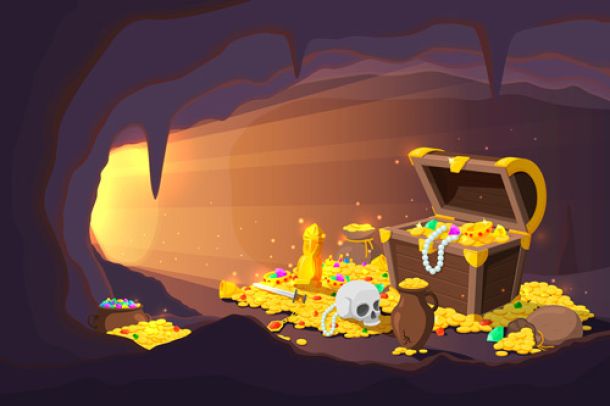Everything Must Go
Lyrics
A fateful attraction
To the hot and heavy glow
A hint of satisfaction
And the sound of the rolling bones
Sweet signal from above
Warms my brain
Now I’ll never be alone again
Oh, can you believe it
A front seat to the show
A hotline to the afterlife
And a discount miracle
You say you wanna live forever
Play a little game with me
Walk a little
Take your spin
Let it out, let it in
It’s a legend
This is love
Sweet signal from above
Warms my brain
Now I’ll never be alone again
All that you can imagine
A universe with a view
Almost like you can have it
A getaway for you
This is love
Sweet signal from above
Warms my brain
Now I’ll never be alone again (x2)
Song Bio
Sing Along
Song Interpretation
Everything Must Go
One of the most iconic concepts in modern American literature is the iceberg principle, in which the text hides essential facts under its surface and we are left to interpret meaning from clues found in potent yet ambiguous language. Some of my favorite stories rely on such rough sketches that drop us into a universe in media res—we bear witness to the story, but are given limited context for understanding, so we have to find meaning in our own personal interpretation of it. The main reason I love these untamed, open-ended narratives so much is that they make us, the readers, a necessary part of unearthing its meaning, thereby immersing us in the author’s work.
Although Ernest Hemingway was the first to use the iceberg approach in prose, it was Raymond Carver in the 1970s who took it to the highest depths. Carver’s stories of realistic American life contained great mystery, with unresolved endings that lead us to wonder about their meaning as well as what would happen next.
There’s a strong undercurrent of Americana in the Goose canon, and my lyrical interpretation of Goose’s Everything Must Go feels much like a discussion of a modern American story by Carver. Maybe not entirely by coincidence, Everything Must Go also happens to be the name of the 2010 film adaptation of the Carver short story, Why Don’t You Dance?
Why Don’t You Dance? is a story about a man going through some kind of loss or crisis (the nature of which, Carver does not tell us), and who believes he can find peace by giving away all of his possessions. The man stages a yard sale with his entire belongings laid out on the lawn, and invites his neighbors to take what they want. The story goes on to explore themes of change, loss, and the desire to start over.
So, too, themes of loss and new beginnings appear in Everything Must Go. But, rather than the narrator giving away their every thing in the front yard, I believe our song finds a star-crossed lover romanticizing the giving away of their everything–their own life–so that they may reunite with a love who has passed on. It’s Shakespearean - a modern retelling of that moment when Juliet proclaims: “O, happy dagger,/ This is thy sheath” before following her Romeo to the beyond. As for the “iceberg,” the song leaves out the most obvious events, while putting us into the mind of an untrustworthy narrator at the critical moment when they are both rationalizing and romanticizing an exaggerated act that might somehow bring them an emotional resolution.
A fateful attraction
To the hot and heavy glow
A hint of satisfaction
And the sound of the rolling bones
Mortality enters the song right at the beginning, with “fateful” being not only destiny but in “meeting one’s fate.” There is something desirable about this “hot and heavy glow”–an “attraction” with “satisfaction.” Could this be from the trigger revealed in the following verse? If it were, might “rolling bones” be a reference to death, as much as it is to casting dice (another act involving fate)?
A future when you need it
You can teach these lights to dance
A finger on the trigger
You’ve got magic in your hands
This verse seems to explore death as a vehicle for a new beginning. “A future when you need it”–as if this is an option always available to us, if only we decide to take it. “Teaching the lights to dance” could be both a reference to the reported phenomenon of entering a tunnel of light in the death experience, and a nod to the Carver story, whose central character dances on his lawn with a young neighbor to revive feelings of love amid loss. “A finger on the trigger,” becomes “magic in your hands,” because the weapon becomes a portal to this imagined better future.
This is love
Sweet signal from above
Warms my brain
Now I’ll never be alone again
We may not be certain of much in this song, but the chorus underscores the most important theme: that love is a deliverance for the narrator, who is alone and in a state of loss, and whatever the act they are planning might be, it holds the potential to bring about resolution and restore a wholeness.
Oh, can you believe it
A front seat to the show
A hotline to the afterlife
And a discount miracle
Our narrator again admits the uncertainty of the plan here, calling upon faith rather than fact that they will earn this rail spot with their love. Could a “hotline to the afterlife” describe both a means of reuniting with this love and a bullet’s path from smoking barrel to warm brain? But something falls short for this miracle, the narrator extols. Unlike a true miracle, which I imagine would come without strings attached, our narrator tries to sell us this “discount miracle,” an off-brand knockoff, whose value is so diminished because it comes at the exchange of their own life.
You say you wanna live forever
Play a little game with me
Walk a little
Take your spin
Let it out, let it in
It’s a legend* — ?
This verse again romanticizes the narrator’s plan to find eternal life and happiness, by likening it to a game. The walk, the spin, paint a happy revelry. Whether in a dance, a spin of fortune, or the spin of a gun’s barrel, it promises to push through the threshold of one life to another, letting one out to let the other in. The last line, which I hear as either “a legend,” or “alleged,” implies that they don’t know for sure that their plan will really work - that it takes faith to move forward.
All that you can imagine
A universe with a view
Almost like you can have it
A getaway for you
The final verse, sung atop a lightening, even heavenly, turn in the music, provides an afterword to the story, and restates the narrator’s feeling of promise that their considered act will help them escape the pain in their present. As it is “almost” like you can have it, there is doubt and tension accompanying the overwhelming emotional tumult the narrator feels.
However one interprets Everything Must Go, the “iceberg” of the song challenges us to think for ourselves, fill in the blanks, and become more immersed in the experience. But, while song lyrics can allow meaning to hang loose and be open to broad interpretation, what does feel like the bedrock of Everything Must Go’s iceberg–its undeniable truth–is love, the narrator's separation from it, and their attempts to find reunion and resolution. Regardless of the meaning we create around the lyrics, we can’t help but feel a story both beautiful and tragic, told by an unstable narrator who portrays an inner struggle and hope for release, guided by faith and cloaked in a joyful, even triumphant musical backdrop.
More Song Interpretations
All Goose Song Lyrics *
My GC
-
This email address is being protected from spambots. You need JavaScript enabled to view it.
GooseCommunity is a project of Western Sun Foundation, a non-profit organization.
Website crafted by Daniel Baron | Joomla Design Studios








